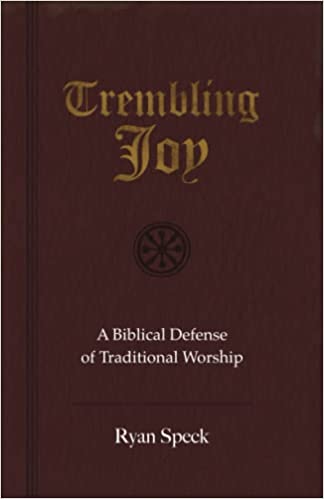A Book Review from Books At a Glance
by Ryan M. McGraw
Among Reformation historians, many recognize that while justification by faith alone tended to be the center of the Lutheran Reformation, the way we worship God dominated the concerns of Reformed churches. Though (thankfully) we do not need to choose between justification and worship, historic Reformed emphases on worship reflected a basic fact: God is more important than we are. Since God saves us in order to worship him, salvation is a means to this end rather than an end in itself.
That said, it is easy on Sunday morning to start asking, “What do we like?” instead of, “What does God want?” In this accessible book, Ryan Speck leads readers by the hand along the path of the Biblical principles and practices of Reformed worship. Giving us more than basic principles, he illustrates step by step what we do in worship, why we do it, and why every element of biblical worship glorifies God and blesses his people. This useful work serves as a sound guide to set us on the right track in our worship, and to practice worship biblically from the fear of God, with joy in our hearts.
Speck’s treatment of worship includes sixteen digestible chapters, and two appendices addressing questions that even divide those holding the same set of principles. Chapters 1-4 lay a foundation by defining what worship is generally, what corporate worship is particularly, and how God regulates and orders our worship biblically. Serving as a bridge between these foundational issues and the practice of public worship, chapter five defines, defends, and illustrates the ideas that God commands certain elements in worship, directs the forms or shape those elements should take, and leads us to consider the circumstances surrounding worship, enabling effective practices of public worship. Chapters 6-15 represent the most distinctive contribution of this book in that the author leads us through the rationale for and outworking and use of each element of the worship service. These include calls to worship, singing, prayer, reading Scripture, “repentance and pardon,” taking an offering, preaching, confessing our faith, using the sacraments, and receiving God’s blessing through benedictions. Some of these elements, such as taking the offering and using confessions of faith, are controverted even in Reformed churches, and Speck makes a solid biblical case for both. Chapter 16 then ties the preceding chapters together by explaining the logical flow and interrelatedness of the various aspects of biblical worship treated in the book. The end result is that the author effectively teaches us what we should do and why, and how to seek to enjoy God’s presence in worship as we approach him reverently through the elements that he has commanded.
The two appendices serve as something of a “bonus” of additional material relevant to public worship. Addressing the concerns of those believing that the church should sing Psalms only, Speck argues why the Psalter, as old covenant revelation, is simultaneously necessary and insufficient for new covenant worship. The other appendix treats extra-biblical holidays, such as Christmas and Easter, as test cases of applying biblical directives for worship, contending that the church should maximize the divinely given weekly Sabbath instead of seeking to invent her own times and days for public worship. Since these two issues continue to prove to be a source of contention and disunity in Reformed churches today, these two appendices round out the book’s material, giving it a complete feel.
Anyone interested in recovering the riches of the biblical principles of worship will find this book useful. Speck shows readers both what we should do, how we should do it, and why God-given aspects of worship are a blessing. Read this book to increase your joy in worship as you seek to give to the Lord the glory due to his name.
Ryan M. McGraw
Buy the books

TREMBLING JOY: A BIBLICAL DEFENSE OF TRADITIONAL WORSHIP, by Ryan Speck